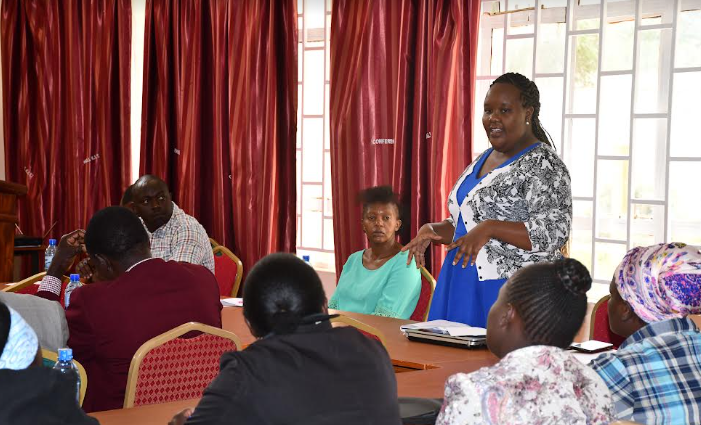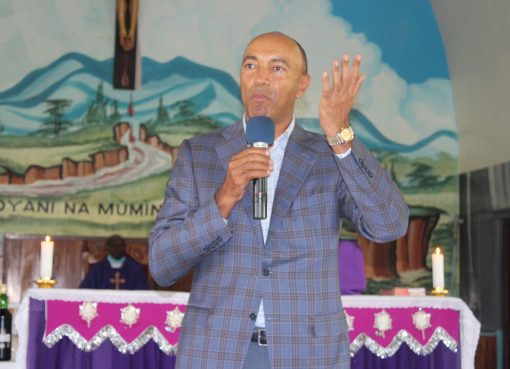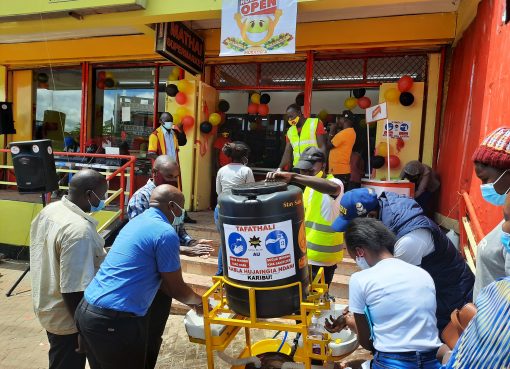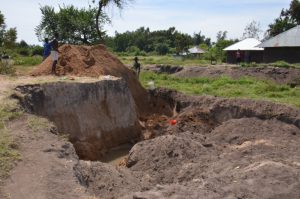A Nakuru based business lady, Mary Wairimu, is keen on giving popular, traditional beverages their place on the Kenya tables.
Her innovation to convert the famous Njahi, the black-eyed beans, into a non-caffeinated beverage stands as a game changer for the local manufacturing industry, with more customers warming up to her products.
To make this Jahay coffee, as she has branded it, Wairimu adds four other herbs that she imports into the country from India and other countries, to afford her clients a whole new experience.
“Jahay, which is served like any other hot beverage made from hot water and milk with sugar to one’s taste; will boost your mood and energize you in a hearty friendly way. You are able to do heavy tasks and brainwork with endurance.
“The Jahay coffee is the only beverage that is addressing addictions by lowering the cravings and calming down withdrawal symptoms from any addiction,” notes Wairimu, adding that it also helps manage arthritis and clears menstrual crumbs, instantly.
Wairimu, who has industrialized the Njahi bean, well known for its fill as the body slowly breaks it down to sugars, has her finished products already gaining ground and her orders now have spilt to the East African Market. Tanzanians, she says, prefer it prepared with ginger, cinnamon and cloves.
To protect Wairimu and other local manufacturers in the country, the government plans to levy importation of finished products similar to those being produced locally.
The proposed Export and Investment Promotion Levy, that is currently undergoing a public participation process, will see the government impose a tax on importation of finished products that the country’s manufacturers can produce locally.
Acting Industrialization Secretary Mr. Nobby Macharia has said that this would boost local manufacturing, which has been badly affected by competition from imports that are a lot cheaper but of dubious quality.
“The levy, that will target importation of finished products will not only spur growth in the sector but also attract investors to set base in the country, while affording Kenyans job opportunities.
“The free-for-all importation of commodities such as building materials, stationery, agricultural produce, pharmaceuticals and packaged foodstuffs among others, was hurting the local producers and hampering the growth and survival of micro-small and medium-sized enterprises (MSMEs),” noting that the Policy was a little sacrifice Kenyans had to make for a better future.
Speaking in Nakuru during a public participation exercise, Macharia said the proposed levy was meant to salvage the industry that accounted for 7.2 per cent of the national gross Domestic Product (GDP) in 2021 up to a target 20 per cent in 2030.
In attendance, residents of Nakuru, Samburu, Bomet and Kericho counties, argued that the levy, that will form part of the Export and Investment Protection Fund, should be put in proper use, to help local manufacturers’ access cheaper credit.
The monies, they added, should also be used to incentivize investments by local MSMEs in the manufacturing sector by providing reliable and affordable credit while helping in setting up of warehouses for their products.
Nakuru Mitumba Traders Association Chair, Laurence Abuga, noted the need to cushion the traders, as foreigners had taken over the importation and sale of second-hand clothes, taking over roles that can easily be carried out by Kenyans.
As the government considers sorting out the mitumba sector by setting up manufacturing plants and ensuring there is enough raw material to sustain the business and spur agriculture and manufacturing, Mr Abuga said it should protect local mitumba traders.
A representative of the Kenya Association of Manufacturers Ms Susan Njuguna urged the government to review unfriendly policies that threaten the “Buy Kenya – Build Kenya” and “Made in Kenya” goals as they give an upper hand to cheaper imports from other countries.
“As we seek to strengthen our position in the global market as the industrial hub for Africa, it is paramount that the government adopts the “do-no-harm” principle whilst intervening in the market, especially now, as we navigate the post COVID-19 Pandemic season,” she added
According to Ms Njuguna reducing costs, retaining jobs, and improving cash flow should be the main priority for all stakeholders.
The government she stated must develop policies with a long-term economic goal as opposed to short-term goals aimed at raising revenue without considering the impact of such policies to citizens and the economy.
By Anne Sabuni





